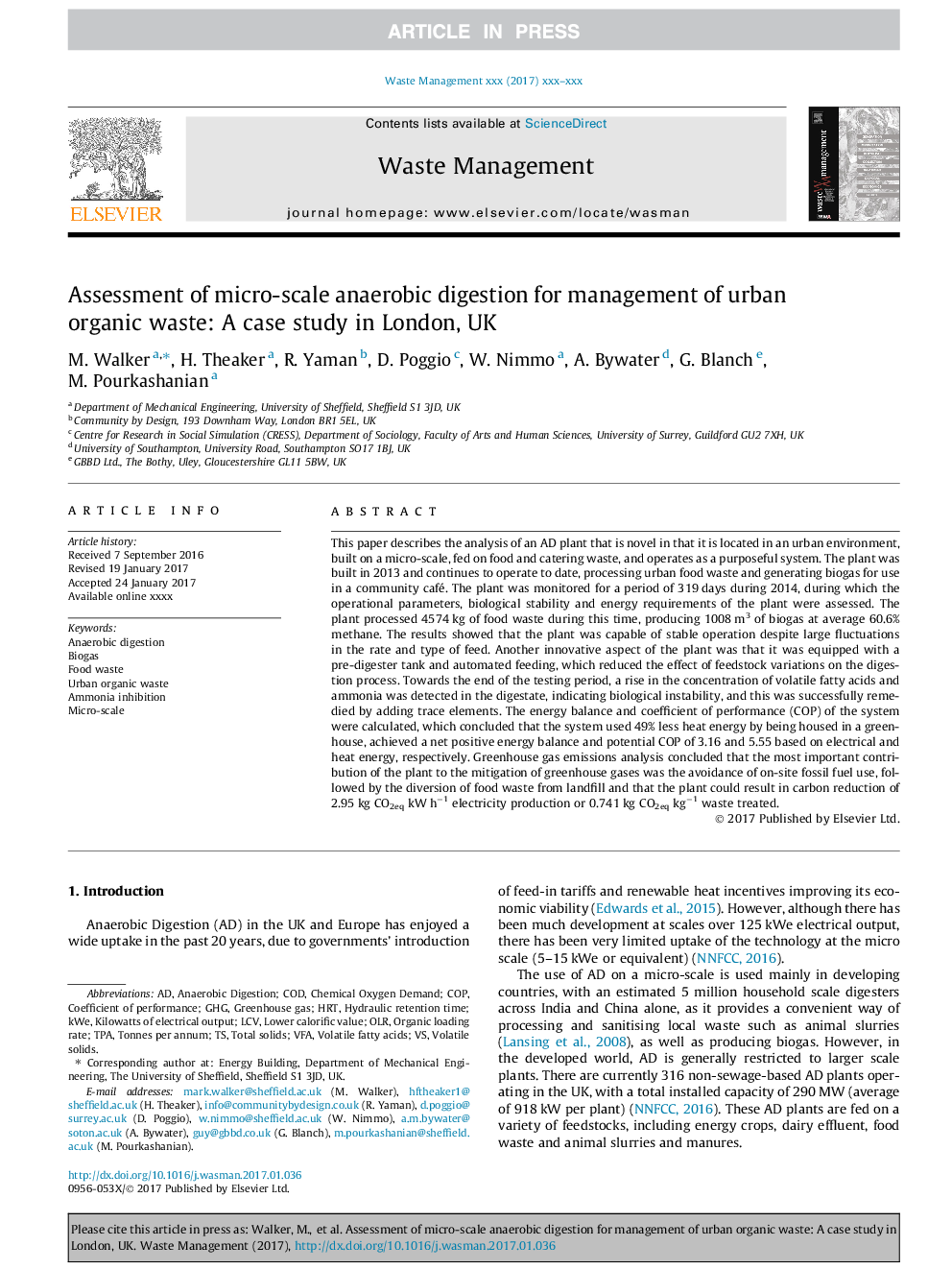| کد مقاله | کد نشریه | سال انتشار | مقاله انگلیسی | نسخه تمام متن |
|---|---|---|---|---|
| 5756960 | 1622625 | 2017 | 11 صفحه PDF | دانلود رایگان |
عنوان انگلیسی مقاله ISI
Assessment of micro-scale anaerobic digestion for management of urban organic waste: A case study in London, UK
ترجمه فارسی عنوان
ارزیابی هضم بی هوازی میکروسکوپ برای مدیریت زباله های زیستی شهری: مطالعه موردی در لندن، انگلستان
دانلود مقاله + سفارش ترجمه
دانلود مقاله ISI انگلیسی
رایگان برای ایرانیان
کلمات کلیدی
GHGtPAOLRHRTVFALCVCOPkWeLower calorific valueVolatile fatty acids - اسیدهای چرب فرارBiogas - بیوگازchemical oxygen demand - تقاضای اکسیژن شیمیاییTotal solids - جامدات جامدvolatile solids - جامدات فرارFood waste - زباله های مواد غذاییhydraulic retention time - زمان هیدرولیکیcoefficient of performance - ضریب عملکردMicro-scale - مقیاس کوچکAmmonia inhibition - مهار آمونیاکOrganic loading rate - نرخ بارگیری آلیAnaerobic digestion - هضم بیهوازیCod - کادوGreenhouse gas - گاز گلخانه ای
موضوعات مرتبط
مهندسی و علوم پایه
علوم زمین و سیارات
مهندسی ژئوتکنیک و زمین شناسی مهندسی
چکیده انگلیسی
This paper describes the analysis of an AD plant that is novel in that it is located in an urban environment, built on a micro-scale, fed on food and catering waste, and operates as a purposeful system. The plant was built in 2013 and continues to operate to date, processing urban food waste and generating biogas for use in a community café. The plant was monitored for a period of 319Â days during 2014, during which the operational parameters, biological stability and energy requirements of the plant were assessed. The plant processed 4574Â kg of food waste during this time, producing 1008Â m3 of biogas at average 60.6% methane. The results showed that the plant was capable of stable operation despite large fluctuations in the rate and type of feed. Another innovative aspect of the plant was that it was equipped with a pre-digester tank and automated feeding, which reduced the effect of feedstock variations on the digestion process. Towards the end of the testing period, a rise in the concentration of volatile fatty acids and ammonia was detected in the digestate, indicating biological instability, and this was successfully remedied by adding trace elements. The energy balance and coefficient of performance (COP) of the system were calculated, which concluded that the system used 49% less heat energy by being housed in a greenhouse, achieved a net positive energy balance and potential COP of 3.16 and 5.55 based on electrical and heat energy, respectively. Greenhouse gas emissions analysis concluded that the most important contribution of the plant to the mitigation of greenhouse gases was the avoidance of on-site fossil fuel use, followed by the diversion of food waste from landfill and that the plant could result in carbon reduction of 2.95Â kg CO2eq kWÂ hâ1 electricity production or 0.741Â kg CO2eq kgâ1 waste treated.
ناشر
Database: Elsevier - ScienceDirect (ساینس دایرکت)
Journal: Waste Management - Volume 61, March 2017, Pages 258-268
Journal: Waste Management - Volume 61, March 2017, Pages 258-268
نویسندگان
M. Walker, H. Theaker, R. Yaman, D. Poggio, W. Nimmo, A. Bywater, G. Blanch, M. Pourkashanian,
